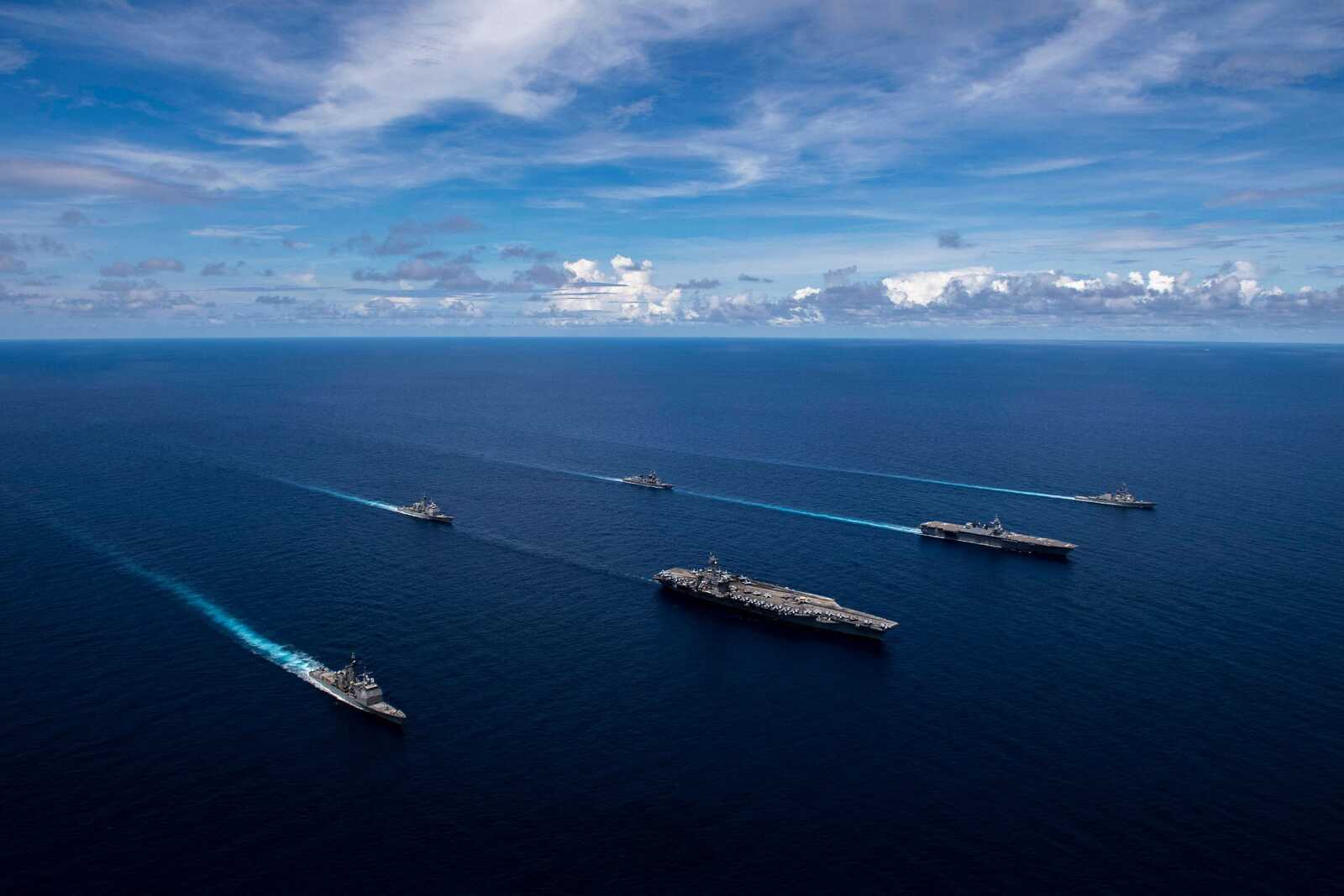
Territorial disputes and geopolitics have been an integral part of human history. From ancient empires battling for land to modern-day conflicts over resources and borders, these issues have shaped the political landscape across the globe. Understanding the intricate details of territorial disputes and geopolitics is not only fascinating, but it also provides valuable insights into the dynamics of power, diplomacy, and international relations.
In this article, we will delve into 9 intriguing facts about territorial disputes and geopolitics. From the ongoing conflicts in the South China Sea and the Kashmir region to historical disputes like the Falkland Islands and the Gaza Strip, these examples highlight the complexities and tensions that arise from competing territorial claims. Along the way, we will explore the historical, economic, and cultural factors that fuel these disputes, as well as their impact on global politics and security.
Key Takeaways:
- Territorial disputes like the South China Sea and Kashmir conflict show how competing claims over land can lead to tension and conflict, shaping international relations and regional security.
- Geopolitical tensions, from the Arctic to the Taiwan Strait, highlight the complexities of global affairs and the ongoing struggle for control over resources and sovereignty.
The South China Sea Dispute
The South China Sea, a strategic waterway in Southeast Asia, is the center of a heated territorial dispute involving China, Vietnam, the Philippines, and other neighboring countries. This dispute revolves around competing claims over the sovereignty of various islands, reefs, and waters, and has significant implications for regional security and resource exploration.
Kashmir Conflict between India and Pakistan
Kashmir, a picturesque region nestled in the Himalayas, has been a contentious issue between India and Pakistan since their independence in Both countries claim sovereignty over the entire territory, leading to frequent military tensions and political impasses. The conflict has resulted in a heavily fortified Line of Control and a deep divide between the two nations.
The Falkland Islands Conflict
In 1982, Argentina and the United Kingdom engaged in a brief but intense conflict over the sovereignty of the Falkland Islands, located in the South Atlantic Ocean. The dispute arose from competing historical and geopolitical claims, and ultimately led to a military confrontation that ended with British forces reclaiming the islands.
The Israel-Palestine Conflict
The Israel-Palestine conflict is a long-standing and deeply complex territorial dispute over land ownership and national identity. Both Israelis and Palestinians claim historical and religious rights to the same piece of land, resulting in decades of violence, diplomatic stalemates, and international intervention.
The Demilitarized Zone (DMZ) in Korea
The Korean Demilitarized Zone is a heavily fortified border region separating North Korea and South Korea. Created after the Korean War, the DMZ serves as a buffer zone and symbolizes the ongoing geopolitical tensions and ideological divide between the two nations.
The Russian Annexation of Crimea
In 2014, Russia annexed Crimea, a region in Ukraine, sparking international condemnation and worsening the geopolitical landscape in Eastern Europe. The conflict highlighted Russia’s territorial ambitions and resulted in ongoing tensions between Russia and the Western powers.
The Sino-Indian Border Dispute
The border dispute between China and India has been a long-standing issue, with both countries claiming large areas along their shared border in the Himalayas. The conflict has led to military standoffs and occasional skirmishes, highlighting the complex dynamics between these two Asian giants.
The Arctic Region and Resource Competition
The melting ice in the Arctic has opened up new possibilities for resource exploration and maritime trade routes. This has sparked territorial disputes between Arctic nations such as Russia, Canada, and the United States, each vying for control and access to the region’s vast reserves of oil, gas, and minerals.
The Taiwan Strait Tensions
The Taiwan Strait, separating the island of Taiwan from mainland China, is a geopolitical flashpoint. China considers Taiwan a part of its territory, while Taiwan asserts its sovereignty as a separate entity. The ongoing tensions have implications for regional stability and international relations in East Asia.
These 9 intriguing facts about territorial disputes and geopolitics demonstrate the complexities and significance of these issues in global affairs. As the world continues to evolve and nations strive to secure their interests, understanding the intricacies of territorial conflicts becomes ever more crucial.
Conclusion
Territorial disputes and geopolitics have always been a fascinating aspect of global affairs. As nations vie for control over valuable land and resources, tensions arise and complex diplomatic negotiations take place. The nine intriguing facts highlighted in this article shed light on the historical, cultural, and political dimensions of these disputes, revealing the intricate web of international relations.
From the South China Sea to Kashmir, from Crimea to the Falkland Islands, territorial disputes continue to shape the world we live in. Understanding the intricacies of these conflicts is crucial for policymakers, scholars, and individuals seeking to comprehend the dynamics of contemporary geopolitics. As borders shift and alliances evolve, the stakes remain high, making it an area of study that demands attention and expertise.
The constantly evolving nature of territorial disputes and geopolitics ensures that this is a topic that will continue to generate interest and serve as a backdrop for significant global developments. By staying informed and engaging in thoughtful discussions, we can contribute to a greater understanding of these issues and work towards peaceful resolutions.
FAQs
Q: What are territorial disputes?
A: Territorial disputes refer to conflicts between countries or regions over the control and ownership of a specific piece of land or water. These disputes often involve claims based on historical, cultural, economic, or political grounds.
Q: What causes territorial disputes?
A: Territorial disputes can arise due to various reasons, including competing historical claims, access to valuable resources such as oil or natural gas, strategic importance, ethnic or religious differences, or unresolved colonial legacies.
Q: How are territorial disputes resolved?
A: Territorial disputes can be resolved through diplomatic negotiations, international arbitration, or legal proceedings. Dialogue, compromise, and mediation by international organizations or third-party mediators can also play a crucial role in seeking resolutions.
Q: Are there any territorial disputes that have been successfully resolved?
A: Yes, some territorial disputes have been successfully resolved through peaceful means. For example, the Norway-Russia maritime border dispute in the Barents Sea was resolved through an international arbitration court ruling in 2010.
Q: Can territorial disputes lead to conflicts?
A: Yes, territorial disputes have the potential to escalate into conflicts, especially if diplomatic efforts fail or if there are significant economic or strategic interests at stake. History has shown that unresolved territorial disputes can be a source of tension and even trigger armed conflicts.
Q: Are there any international organizations that deal with territorial disputes?
A: Yes, there are various international organizations, such as the United Nations and the International Court of Justice, that can play a role in facilitating negotiations, providing arbitration, and promoting peaceful resolutions to territorial disputes.
Q: Are all territorial disputes between countries?
A: No, territorial disputes can also occur within a country, involving different regions or ethnic groups vying for control or autonomy over a specific territory. These internal territorial disputes can be equally complex and challenging to resolve.
Q: How long do territorial disputes usually last?
A: The duration of territorial disputes can vary significantly. Some disputes have been ongoing for decades or even centuries, while others have been resolved relatively quickly through diplomacy or legal mechanisms.
Q: Are territorial disputes a common occurrence?
A: Yes, territorial disputes are relatively common in global affairs. Nations constantly reassess their boundaries and claims, leading to the emergence of new disputes or the reemergence of historical tensions. The fluid nature of geopolitics ensures that territorial disputes will continue to be a significant aspect of international relations.
Was this page helpful?
Our commitment to delivering trustworthy and engaging content is at the heart of what we do. Each fact on our site is contributed by real users like you, bringing a wealth of diverse insights and information. To ensure the highest standards of accuracy and reliability, our dedicated editors meticulously review each submission. This process guarantees that the facts we share are not only fascinating but also credible. Trust in our commitment to quality and authenticity as you explore and learn with us.


